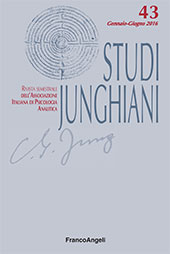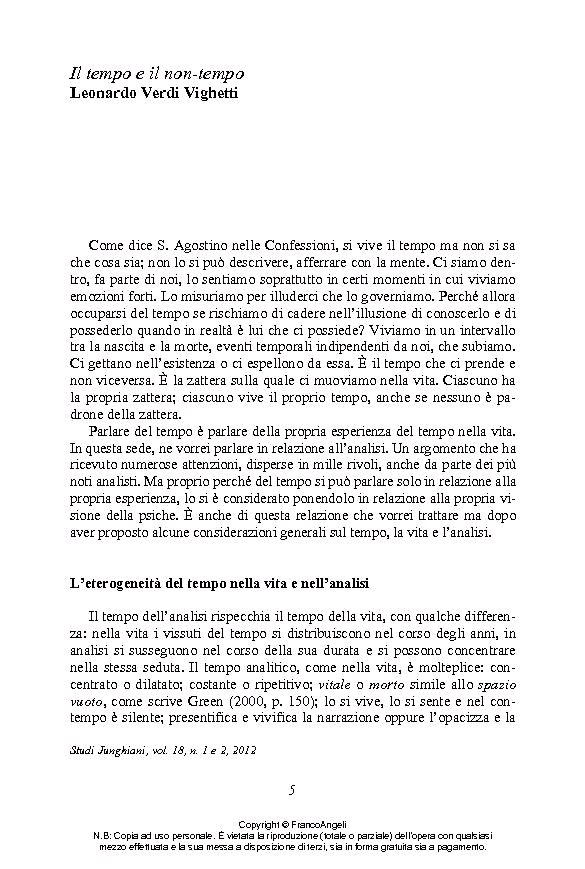Il tempo e il non-tempo
5-19 p.
Time and no-time.
Il tempo, questa esperienza così familiare e nel contempo così sconosciuta, assume forme diverse nella vita e nell'analisi, forme che si intersecano e si dissociano. Compito dell'analisi è anche quello di slegarle o di valorizzare le une per comprendere le altre, soprattutto in un momento storico in cui il tempo della produttività rischia di determinare il tempo dell'individualità. Rispetto al tempo dell'analisi, vi sono tante concezioni del tempo quante sono le visioni della psiche. Ne sono prova le elaborazioni di Freud, Jung, Matte Blanco, Winnicott, Stern. Il tempo in analisi sfiora costantemente il paradosso, tra storicità e a-temporalità, tra continuità e rottura, tra ripetitività rituale e unicità impercettibile. Le metafore sono il luogo privilegiato in cui si attua il paradosso. [Testo dell'editore].
Time, this experience so familiar and yet so unknown, takes different forms in life and in analysis, forms that intersect and dissociate. Analysis has also the task to untie them or to value the first to understand the latter, especially in a historical moment in which time productivity is likely to determine the time of individuality. Compared to the time of the analysis, there are many conceptions of time as there are visions of the psyche. The elaborations of Freud, Jung, Matte Blanco, Winnicott, Stern testify this. Time in analysis constantly touches the paradox between historicity and a-temporality, between continuity and rupture, between ritual repetition and imperceptible uniqueness. Metaphors are the privileged place where paradox realizes itself. [Publisher's Text].
Ist Teil von
Studi junghiani : rivista semestrale dell'Associazione italiana di Psicologia Analitica : 35/36, 1/2, 2012-
Artikel aus derselben Ausgabe (einzeln erhältlich)
-
-
Informationen
ISSN: 1971-8411
KEYWORDS
- Continuum spazio-temporale, vuoto, metafora, Jung, Green, Stern
- Time-space continuum, emptiness, metaphor, Jung, Green, Stern



